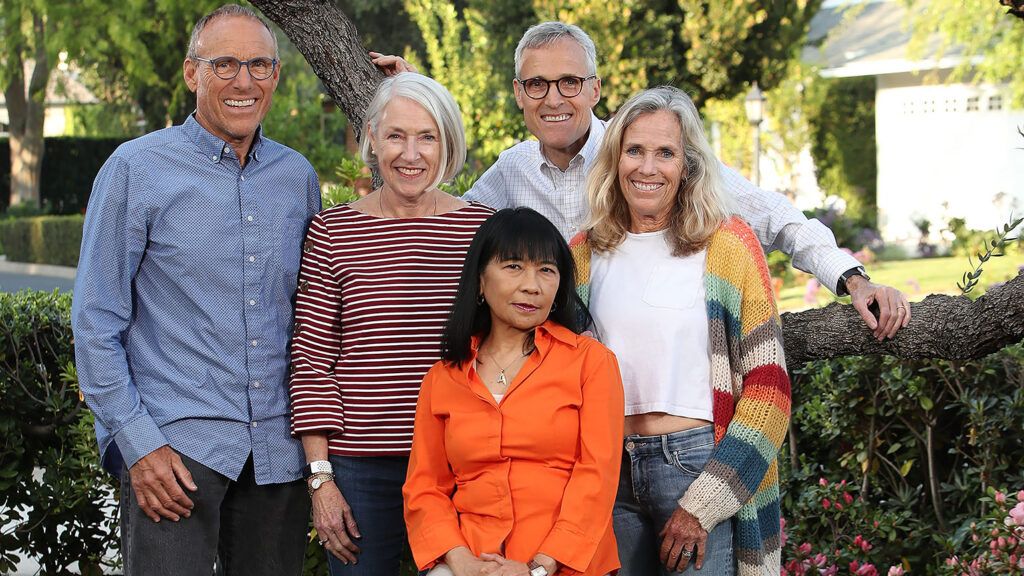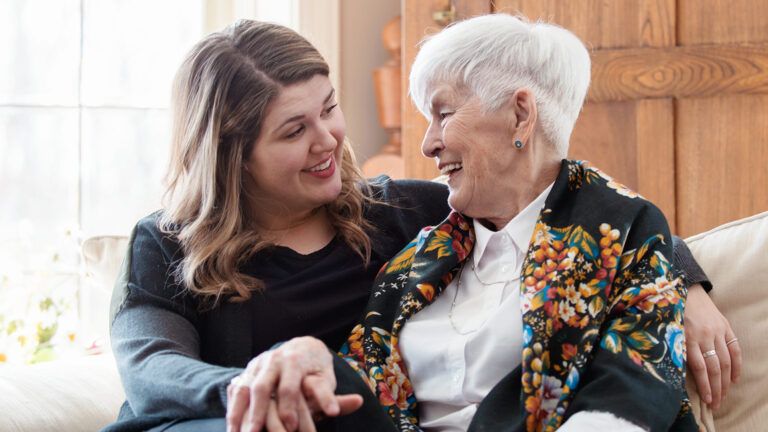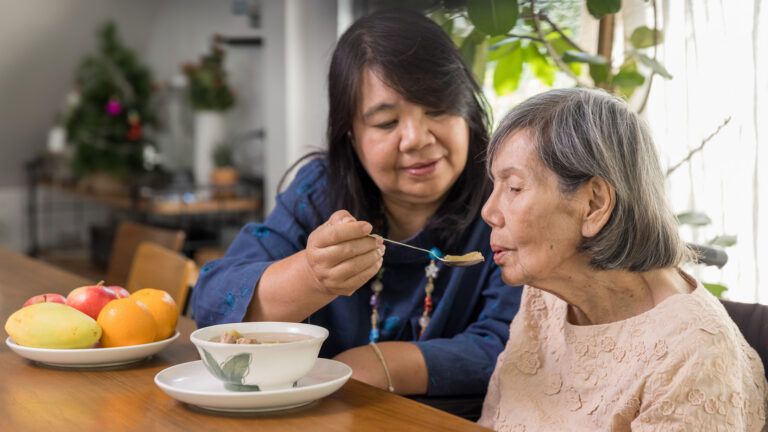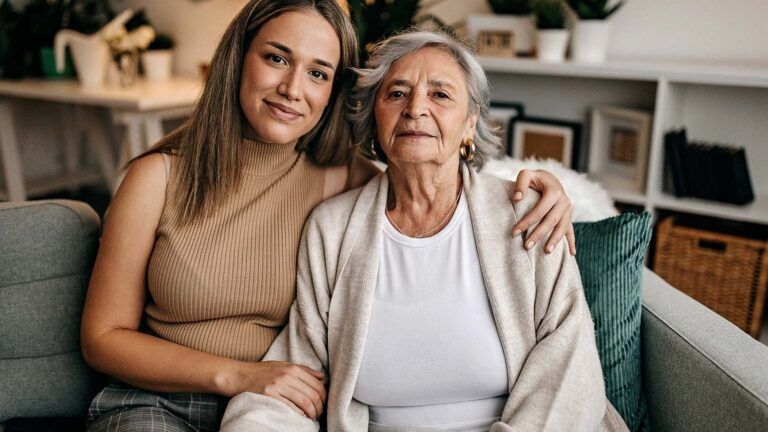“Bye, Mom. Talk to you next week.” I hung up the phone, unable to ignore the drumbeat of worry that had been building during our conversation. It was our Sunday call, when we touched base every week.
What was it that had me so concerned about Mom? Her hip? The pain was pretty intense, bone grinding on bone. She’d had a procedure a couple years back, to no avail. But she was her usual uncomplaining self. “The doctor gave me something that I can take before I go to bed,” she’d said. “It seems to help.” No more strolls up and down the block in her walker, though.
Maybe it was how much sleep she seemed to need lately. Up in the morning to do the L.A. Times crossword puzzle, then back down for a nap. Up for lunch and an attack on the crossword in the Pasadena Star-News, then another nap. Dinner and the book that she was reading for her book group. Then bed. “I sleep fine,” she insisted.
The worst thing was being 3,000 miles away. Mom still lived in the Pasadena area, where she’d been born and raised and where my siblings and I had grown up. I envied their proximity to Mom. My older sister, Gioia, lived two miles away and always had Mom over for Sunday dinner. My other sibs, Howard and Diane, lived 45 minutes away, but they drove up frequently. Diane took Mom to doctors’ appointments, as did Howard’s wife, Julie; Howard helped out with her taxes. I felt guilty I couldn’t do more.
My siblings could see through her “I’m doing fine” disclaimers. They could see how thin Mom had grown. “How much did the doctor say you weighed?” I’d asked. “Ninety…ninety-one…” she said. Ninety-one. The same as her age. Gioia bought her groceries every week, all those bottles of Ensure. But Mom needed to put on some weight. She could usually be lured into a scoop or two of ice cream, not to mention some See’s Candies… What else was she eating?
“Don’t you have eggs for breakfast anymore? And bacon?” I asked.
“Sometimes,” she said.
Sometimes. How often was that?
It wasn’t just the distance that made it challenging for me to get a full picture of Mom’s condition but her very nature. Fiercely independent, determined to take care of herself, relentlessly positive. In her mid-eighties, after Dad died, she sold the house they had built together and bought a smaller one “all on one story.” I didn’t see the sense of it. She could still climb stairs with ease. Played tennis several days a week. But she was looking ahead, to where she was now. The walker, the cane, the tennis racquet now retired.
I told myself that I should be grateful that her mind was still sharp, even if she couldn’t recall what she ate for breakfast. She had her daily crosswords, her book group. She didn’t go to church anymore—it conflicted with her morning nap time—but there was her Daily Guideposts next to her bed. Still, this recent conversation unnerved me. “We need to go visit Mom,” I told my wife, Carol. We’d just been there at Christmas, but Christmastime was so busy, so many of us coming and going—kids, grandkids, great-grandkids. What if we caught her on a quieter weekend?
“Mom,” I said, calling her back, “I get MLK Day off. Carol and I thought we’d come out and stay with you for the long weekend. I’ll book a flight that gets in Thursday night.”
I could hear the smile in her voice. “That would be nice.” And then that practical nature coming through. “I’ll leave the door unlocked.”
The Lyft driver dropped us off from the airport. The porch light was on and the front door, indeed, unlocked. Mom called to us from her bedroom as she heard us tiptoe in. We wished her good night. Then we went to sleep—we were still on New York time. In the middle of the night, I heard her get up with her walker and go to the bathroom. At least she can do that on her own. First thing in the morning, I went for a run and Carol went for a walk. By the time we got back, Mom was sitting at the breakfast table, a crossword puzzle at the ready.
Carol looked down at Mom’s plate. “Peggy, is that all you’re eating? Half a piece of toast?”
“I’ll have something to drink later,” she said sheepishly. What? Some tea? A few sips of Ensure?
At once we put it together. Frying an egg, microwaving bacon. It was too much for her. Mom winced as she shifted in her chair. That hip. She had her pills sorted on the counter, but she hesitated to get up for them. We could cook for her all weekend, bring her her pills, but what would happen after Monday?
“Mom,” I said, “you need someone to come in and help you during the day.”
“Hmmm,” she said. “I don’t know.” She went back to her crossword, clearly hoping to end the conversation. Was this stubbornness just the flip side of her strong will and independent nature?
I talked to Gioia. As the eldest, she had the strongest powers of persuasion. And Diane. Mom trusted Diane on medical matters from all those doctors’ visits. Howard too—she relied on him to handle the financial details.
It was Gioia, though, who sat Mom down after our visit. She reminded Mom of the caregiver she’d had before—for a week—after her hip procedure. We would go to the same agency and see if there was someone available to assist Mom a couple days a week.
Mom frowned. “Only for an hour,” she said.
“Mom,” Gioia said, appealing to her sense of fair play. “The person needs to get paid for more than just an hour.” A sigh. “I suppose so.”
Enter Nora. Discreet, kind, good-humored, faithful. Three days a week, she’d arrive at 8 a.m., fix breakfast, help with the morning shower, settle Mom with a heating pad for her hip, do laundry, count out the pills, wash the dishes, get lunch ready, leave some dinner in the fridge and do it all in such a way that her presence was never an intrusion. I was amazed at how quickly Mom warmed to her. “How’s Nora?” I would ask when I called on Sundays. “She’s such a dear,” Mom said.
Texts flew back and forth between my sibs and me. What if Nora came more often? Diane suggested it first. Mom’s response? A categorical no. Then, only a couple weeks later, Mom called Diane out of the blue. “I think Nora should come for the whole week if that works for her,” she said. Done.
For the next two years, Nora made Mom’s home a sanctuary. The book group could drop by; kids and grandkids came and went; we’d fly out and stay for a bit. Nora was such an intimate part of Mom’s life, she felt like family.
Nora was there that Monday when Mom just didn’t feel well enough to get out of bed. Nora was worried. Howard and Gioia took Mom to the doctor’s, then to the hospital. The diagnosis: pneumonia. At age 93, Mom was quick to proclaim to anyone who would listen, “You know, the last time I was a patient here was when I had my last child”—63 years earlier.
I flew out on Tuesday. Spent most of Wednesday with her, Nora texting us prayers. On Thursday a minister from church visited and we gathered around Mom’s bed. The pastor read Mom’s favorite Bible passage, from Isaiah, “about eagles’ wings,” as Mom put it. We sang “On Eagle’s Wings.” Then she turned to me and said quietly, “I’m going to the Lord’s house soon.”
Nora came by that afternoon. Mom’s daily companion for the past two years, a comforting presence and now, miraculously, a beloved friend. Mom looked up and exclaimed, “There’s my angel.”
Nora was the angel Mom didn’t know she needed. She was also my angel, easing my mind, letting me rest assured that the mom who had cared so well for my siblings and me was being so well cared for in her later years. That evening, after all of us had left, Mom died. I’m still coming to terms with her enormous absence in my life. Yet even in my grief, I give thanks for Nora and the Providence who sent her to us.
Share the Care: 7 Tips for Sibling Family Caregivers
For more inspiring stories, subscribe to Guideposts magazine.




